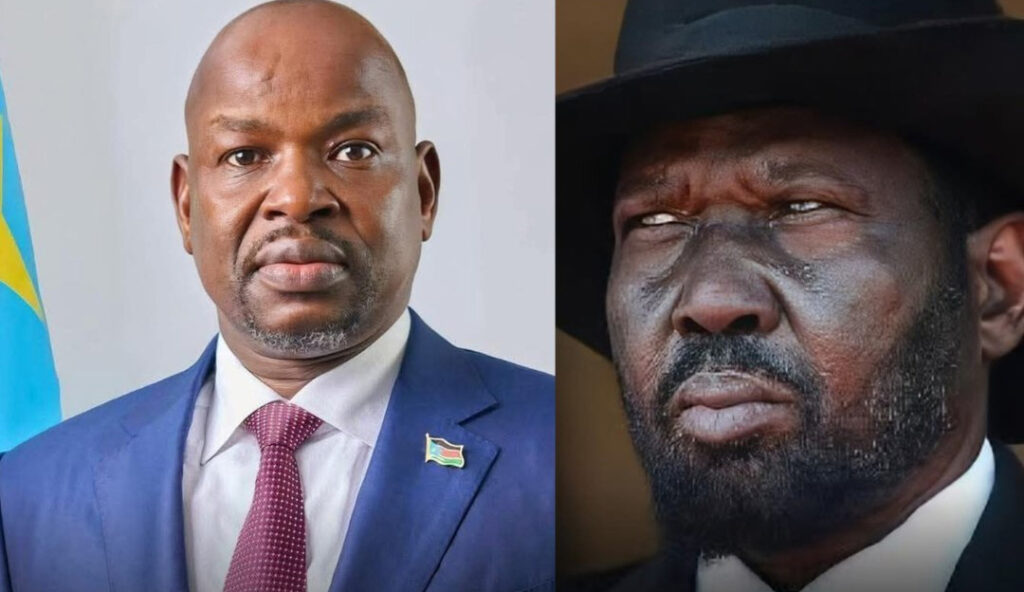President Salva Kiir Mayardit has announced a sweeping series of presidential decrees, broadcast this evening on South Sudan Broadcasting Corporation (SSBC), marking one of the most significant government reshuffles in recent years. The changes affect top positions across the political, security, and financial sectors.
Vice President Benjamin Bol Mel Dismissed
The most consequential decision concerns Benjamin Bol Mel, who has been relieved from his position as Vice President of the Republic of South Sudan. The presidential decree also confirmed his removal as SPLM First Deputy Chairman and his demotion from General to Private, effectively dismissing him from the National Security Service (NSS) and restoring him to civilian status.
The move comes after days of speculation, reports of internal tensions, and mounting rumors of corruption and political maneuvering within Juba’s top leadership.
SPLM Reshuffle: Paul Logale Replaced by Akol Paul Kordit
In the political wing of the ruling party, President Kiir also announced the dismissal of Paul Logale from his role as SPLM Secretary General. He has been replaced by Akol Paul Kordit, a prominent party figure and former deputy minister, who is expected to play a central role in reorganizing the SPLM’s internal structure ahead of upcoming national reforms.
Central Bank Governor Removed
The decrees further included the dismissal of Addis Ababa Othow from his position as Governor of the Bank of South Sudan (Central Bank). His removal comes amid growing concerns over financial governance and transparency in the handling of public funds and oil revenues.
Changes at the Revenue Authority
In a related financial decision, Simon Akuei was removed as Commissioner General of the South Sudan Revenue Authority (SSRA). The President appointed William Anyuon Kuol as his replacement, signaling a possible push for stronger oversight and accountability within the country’s tax administration.
A Broad Signal of Political and Institutional Realignment
Analysts see the reshuffle as a clear signal of President Kiir’s intent to reassert control over key state institutions and address mounting internal and external pressures over corruption, mismanagement, and political infighting. The changes come as South Sudan faces one of its most challenging economic and political periods since independence.
The presidential decrees take immediate effect, and all dismissed officials are expected to hand over their duties to their respective successors.


